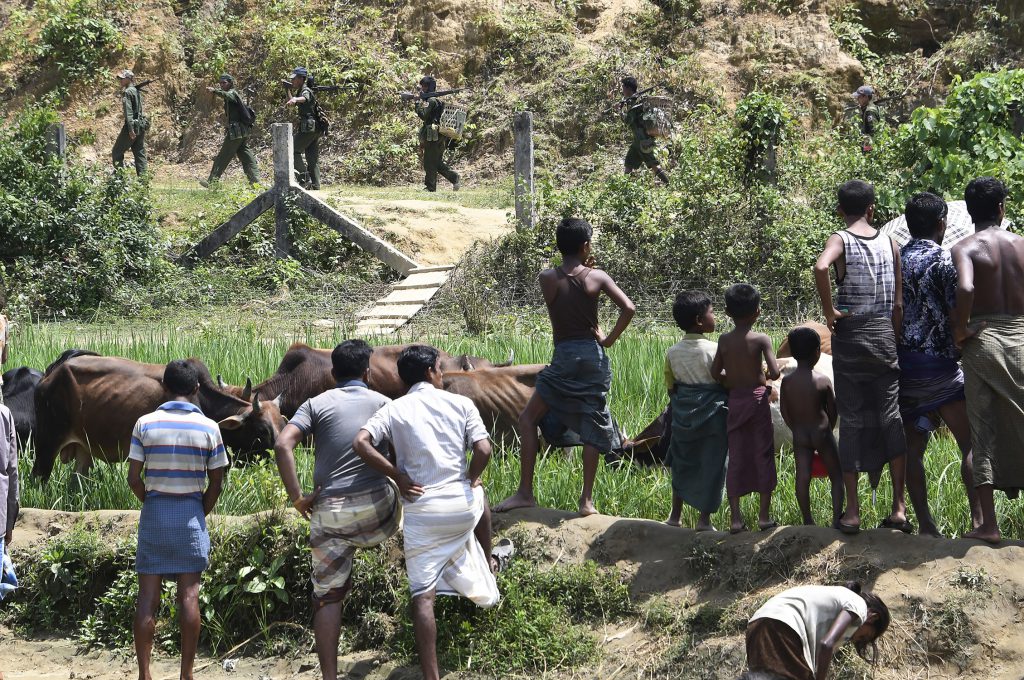By AFP
DHAKA — A Myanmar government minister has told Rohingya refugees living in a makeshift camp on the Bangladesh border they should take up a government offer to return, warning they will face “consequences” if they stay where they are.
A video circulated on social media apparently shows Deputy Minister for Home Affairs Major-General Aung Soe addressing a group of refugees through a barbed wire fence last Friday.
Nearly 700,000 Rohingya have sought sanctuary in Bangladesh since a military crackdown last year in response to militant attacks on security posts.
Despite the campaign, which the United Nations has said amounts to ethnic cleansing, the two governments agreed late last year to repatriate all the newly-arrived refugees.
But many say they do not want to return until Myanmar agrees to give them citizenship and guarantees their safety.
Myanmar regards the Rohingya as immigrants from Bangladesh and denies them citizenship, even though they have been there for generations.
The minister’s message was directed at around 6,000 refugees living in Tombru, an area of no man’s land between Myanmar and Bangladesh.
In it, he tells them they must return or “suffer the consequences”, and that the area they were living in was under Myanmar’s jurisdiction.
“If the Rohingya refuse the proposal put forward by the Myanmar government through this delegation, it will not bode well for the Rohingya living in no man’s land,” said the minister through a translator.
Bangladesh security forces in the area confirmed the minister’s visit to AFP.
“He kept telling the refugees to move away from Myanmar land, or they would face problems,” said police officer Mohammad Rashid by phone from the area.
Local Border Guard Bangladesh commander Manzurul Hasan Khan said Myanmar authorities had been using loudhailers since Friday to ask the refugees to leave.
Rohingya living there told AFP soldiers had recently put up tents near the barbed wire fence.
“They (Myanmar army) often fire blank rounds to create panic. We’ve heard they also set fire to nearby villages recently,” said Dil Mohammad, one of the refugees.
Doctors Without Borders estimates at least 6,700 Rohingya died in the first month of the violence that sparked the outpouring of refugees.
Many of them have told harrowing stories of rape, arson and mass executions at the hands of the military and Rakhine mobs.
Myanmar’s army denies the allegations.







